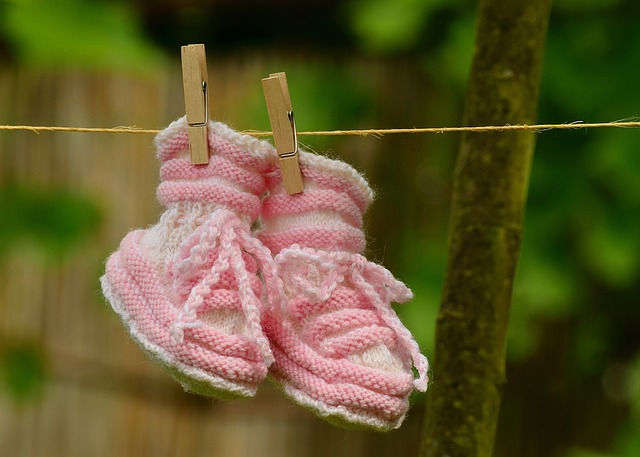As I finished typing the birth announcement message, something hit me hard. ‘Proud parents’ I read and re-read. A sudden electric wave jolted my body draining the tiny bits of excitement and enthusiasm I had before.
Tears began to roll down my cheeks. I looked at my ugly, fat reflection in the mirror adjacent to my bed. Next to me was the most beautiful thing that happened to me and yet, I was sad. The mounting confusion began to clear up when I realized, it was the baby blues.
The 9 month journey is more of a roller coaster ride. With slow and fast paced phases, the bumpy journey is full of anxious dreams. With ongoing complaints of nausea and heartburn, doctors often continue to prescribe new medicines at every visit. And when the baby finally arrives, bam! Target achieved.
No, not totally. The real game then begins. Aside from the weird sleeping and crying pattern of the baby, you are rarely told about what you are yet to experience.
The fourth trimester–as some call the first three months of your new baby’s life–is more difficult than the previous three. With a baby who won’t fall asleep, you have a number of issues to deal with. Here are some of them:
Your stitches need care
Cesarean and normal delivery are equally difficult in their own ways, and both require a time of rest and healing. Your stitches require extra care, whether you had a Cesarean or required stitches after your vaginal birth.
When people tell you that it gets normal in few days, they are showing you a picture that they have already forgotten. Ignore them. All you need is an adequate amount of rest and care. A bath using Epsom salt is one of the best ways to heal your stitches quickly (consult with your doctor first). Wash and dry your stitches and every abnormal sight and pain must be reported.
Eat right and stay hydrated
Water is the key. If you are breastfeeding, you need about 3 liters of water per day. Did you say ‘whaaat?’ Yes, that is the truth. Apart from the lifelong lecture of hydration for acne-free,glowing skin, your postnatal period definitely requires you to fill the tank for an active recovering body.
Dealing with constipation
Water is not only essential for feeding the little angel and for kick-starting your organs after a Cesarean, it is a ‘must’ for constipation. This is a gross little truth you need to practically handle. Your baby has not only resulted in awkward bulges, but it has also made your hormones act weird.
Also, your pelvic muscles are tight and you have got some real stitches and sensitive areas. Using the bathroom might be a struggle, but it doesn’t have to be so bad if you are aware about the situation. All you need is to maintain a good diet during and after pregnancy.
After birth, remember to have a fiber-rich diet (figs and dates work wonders). Drink loads and loads of water and try stool softeners for the first few days. Anal fissures and hemorrhoids are common. Try going for a well-balanced, fibrous diet to stay away from such unwanted circumstances.

Weight gain, hair loss, aches and stretch marks
Time will make things alright. Yes, it might sound like a cliché, but this is the truth. Just as the crying, full-of-tantrums baby will grow into a well-behaved child, you will also pass through this stage. While you may never get back to your pre-baby figure, things will get easier. Weight gain is normal and healthy in pregnancy, so if you hear someone with sarcastic comments, just ignore them.
Your skin, too, has undergone drastic changes and pregnancy may leave weird marks over your body (especially your abdomen), but these will fade with time. One trick for fast results is the use of organic coconut oil. Also, you may face hair loss that may start around three months after the delivery. For this reason, you must take your supplements on time as it will not only help with your hair loss but will also heal your aching, fatigued body.
Depression, or the “Baby Blues”
Postpartum depression is a topic widely-researched and rarely talked about. Your hormones have gone crazy and they ought to:you have given birth to a beautiful human being. With the list of physical ups and downs, your emotional self will also face some turmoil. You might want to cry at the happiest moments. You may not show extra love to the baby when you’re alone like you do when people are around. Don’t worry, they have not gone through what you just did. It may feel like everyone brings out your cranky side. All you need to do is relax and accept it is normal.
Don’t keep these feelings to yourself. Confide in your friends and family and most importantly, pray. Allah will take you out of this depressing phase, blessing you with happiness and peace. Rest assured that this sadness and emotional upheaval won’t last long, and if it does, seek professional help immediately. The “Baby Blues” are normal, but full-blown postpartum depression that exceeds the normal time and measure should never be ignored.
The final word
Giving birth is one of the most beautiful experiences. Set aside the physical and emotional pain associated with it, and think about the power women have to yield a life. The postpartum time is a phase that will go away. All you need to do is place your trust in Allah and pray for things to go smooth for you and the baby, and do your best to take care of yourself, physically and emotionally. Good luck!
First published: February 2018